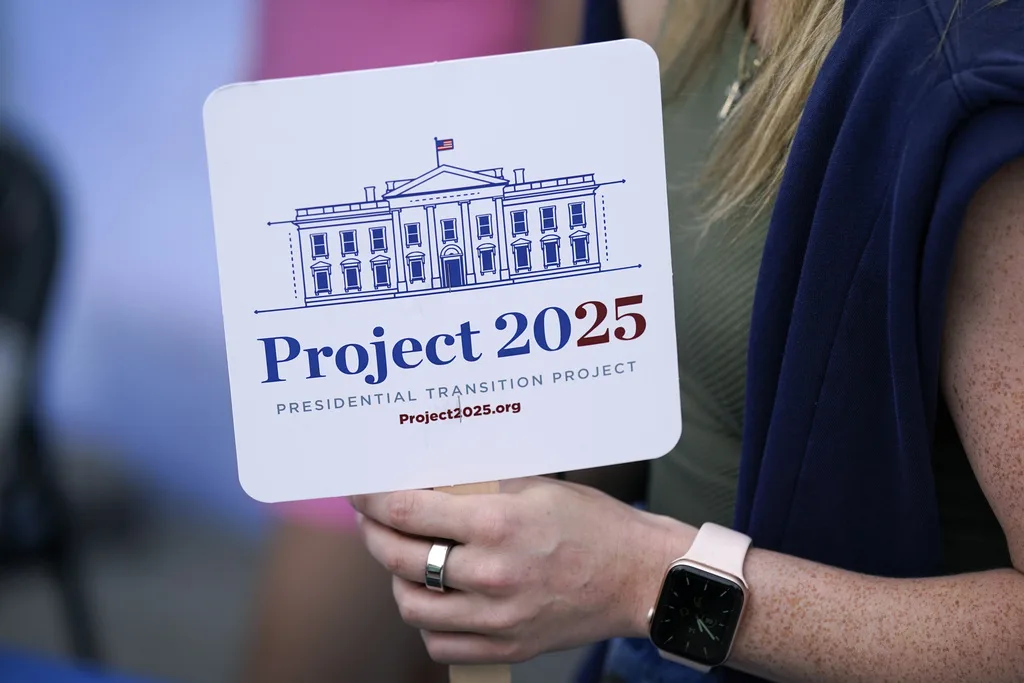
Photo via Shutterstock
By the time the Virginia General Assembly wrapped up its 45-day legislative session earlier this year, more than 3,000 bills had been introduced and over half of them were passed and signed into state law.
These laws covered everything from sexual harassment and abortion to LGBTQ issues, wage equity, and small business financing.
Per Virginia state code, virtually all of the laws enacted during the session are set to take effect on July 1, so let’s take a look at six that could have economic implications on the lives of Virginians, boosting their wages, giving them more rights on the job, and a whole lot more.
House Bill 1924
House Bill (HB) 1924 has to do with minimum wage requirements for people with disabilities.
Currently, a section of the Fair Labor Standards Act, which was enacted in 1938, allows employers to pay employees impacted by a physical, developmental, cognitive, mental, or age-related disability lower than the minimum wage. The national average for workers being paid subminimum wage is just $3.34 an hour, according to a 2020 report from the US Commission on Civil Rights.
House Bill 1924 will phase out this sub-standard minimum wage in Virginia and will dovetail with the Disability Innovation Fund grant that was awarded to the commonwealth last year. Together, HB 1924 and the grant will transition hundreds of disabled Virginians still being paid below minimum wage to a liveable wage.
Organizations across Virginia have lauded HB 1924, saying that it is a critical step in ensuring that those with disabilities are treated fairly in the workplace. Some of these organizations include the National Down Syndrome Society, the National Federation of the Blind of Virginia, and the Virginia Board for People with Disabilities.
“Wage equity is social equity,” Kandi Pickard, president and CEO of the National Down Syndrome Society said in a statement. “Eliminating subminimum wage is crucial to not only the disability community but to the state as a whole.”
The bill was introduced by Democratic Del. Patrick Hope of Arlington County.
Senate Bill 1040
Senate Bill (SB) 1040 will prohibit Virginia employers from using an employee’s social security number (or any part of it, such as the last four digits) on any identification badge or access card that is issued.
When Social Security numbers were first introduced in 1936, they were used for “the sole purpose” of tracking the earnings history of workers for benefits, according to the Social Security Administration. In recent years, the numbers have become a key method of identification, however. Because of this, millions of social security numbers have been exposed in recent years to hackers at places such as the US Postal Service, a hospital network, and Anthem health insurance.
This new law will ultimately ensure the privacy of millions of Virginians and help protect them from identity theft.
According to the Virginia Department of Labor and Industry (L&I), if any employer knowingly violates this law, they will be subject to a civil penalty “not to exceed $100 for each violation.” Any employer that the commissioner of L&I alleges has violated the law will be informed by certified mail. If the employer would like to challenge this, they must request an “informal conference,” or hearing, regarding the violation.
SB 1040 also gives the commissioner or their authorized representative authority to seek injunctive relief for the law’s enforcement.
The bill was introduced by Democratic Senator Jeremy S. McPike, who represents all of Manassas City, Manassas Park City, and part of Prince William County.
House Bill 1895
House Bill 1895, also known as the “The Silenced No More Act,” has to do with sexual harassment and nondisclosure, or confidentiality, agreements.
Virginia law currently prohibits confidentiality clauses related to claims of sexual assault in employment agreements. House Bill 1895 will expand the law to cover claims of sexual harassment as well and will make any confidentiality agreements that would bar discussion of conduct at a past workplace, at work events, or between employees and employers null and void.
The law will also make it illegal to include any clauses in employment agreements that “have the purpose or effect” of concealing details related to sexual assault and harassment claims. The amended law will also apply to agreements that are entered into “as a condition of employment.”
While the law makes confidentiality clauses related to sexual harassment void, employers may still include confidentiality clauses in severance and post-termination settlement agreements when an employee is let go from their job.
In March, the National Labor Relations Board declared that confidentiality provisions are “unlawful in most circumstances.”
At a press conference earlier this year, Del. Eileen Filler-Corn (D-Fairfax)—who introduced the bill—said that it’s a “pro-business, law-and-order bill aimed at further improving NDAs.”
“You might ask me how,” she added, before providing the answer: “By cracking down on illicit behavior and preventing bad actors from getting away with these illegal acts of discrimination, retaliation, assault, harassment, workplace violations, waste, and abuse.”
House Bill 1517
Many of us have signed up for a free trial of a streaming service and forgotten to cancel before getting charged when the trial is up. House Bill 1517 aims to address that issue and more.
HB 1517 will require any business that offers a free trial that lasts more than 30 days to notify the consumer of their option to cancel within 30 days of the free trial ending. If a company fails to do this, they will be in violation of Virginia Consumer Protection Act (VCPA).
Businesses will also be in violation of the act if they fail to disclose the “total cost of a good or continuous service to a consumer” prior to them paying for it. This applies to any mandatory fees or charges, as well. For a proven VCPA violation, the consumer may recover actual damages or $500, whichever is higher.
Like other clauses of the Virginia Consumer Protection Act, HB 1517 will protect consumers from “fraud, deception, and misrepresentation.”
This bill was introduced by Democratic Del. Dawn M. Adams, who represents parts of Chesterfield County, Henrico County, and part of Richmond.
Senate Bill 1086
Senate Bill 1086 will require Virginia employers with 50 or more employees to provide at least 60 business days of unpaid leave to eligible workers who donate one or more body organs. It will also require them to provide at least 30 business days of unpaid leave to employees who donate bone marrow.
To be eligible, employees must have been employed at their current job for at least a year, and must have worked at least 1,250 hours at that job in the previous year. A physician must also provide documentation stating that the employee is an organ or bone marrow donor and that the donation is medically necessary.
While the leave is unpaid, the law requires that employers restore employees who take this leave to the position they held before they took the leave or to an equivalent position with equivalent pay and benefits. Employers must maintain coverage of the employee’s health insurance while they are taking the leave, as well.
The bill will also make it so employers are prohibited from considering organ donation leave as it applies to the employee’s right to salary adjustments, sick leave, vacation, and more. Employees will also still be able to take federal family and medical leave within the same year under SB 1086.
Employers will also be subject to fines of up to $5,000 if they violate this law, depending on whether it is the first, second, or a successive violation.
According to the Society for Human Resource Management, “employers can save lives through organ donation support.” This law will help facilitate that by making it easier for working Virginians to donate.
This bill was introduced by Democratic Senator Adam P. Ebbin, who represents parts of Alexandria City, Arlington County, and Fairfax County.
Senate Bill 1320 and House Bill 1411
Senate Bill 1320 and its accompanying bill in the House, HB 1411, will codify and provide more funding to the Virginia Community Development Financial Institution Fund (VA CDFI Fund).
In 2021, Virginia created a state-funded community development financial institution (CDFI) to provide credit and financial services to underserved markets and populations, including to communities of color, which have historically faced considerable challenges in accessing banking services.
According to the Virginia CDFI Coalition, a nonprofit which seeks to address the financial needs of Virginians, creating the VA CDFI Fund “expanded inclusive economic opportunities throughout the Commonwealth.” Since its creation, the fund has deployed nearly $1.7 million in loans to over 160 small businesses, resulting in the creation and/or retention of over 300 jobs across the state.
Codifying and providing more funding to the VA CDFI Fund will “expand economic opportunity across Virginia,” according to US Rep. Jennifer McClellan, who introduced the bill while serving in the state Senate, prior to her election to Congress in March.
“CDFIs are built to drive capital and provide banking resources for under-resourced communities, and they are a critical tool for addressing the housing crisis,” Leah Fremouw, president and CEO of the nonprofit Bridging Virginia and president of the Virginia CDFI Coalition, said in a statement. “Establishing a consistent funding source allows CDFIs to not only address the most urgent issues but to coordinate on long-term, sustainable solutions.”
The bill in the House was introduced by Republican Del. Daniel W. Marshall, who represents parts of Henry and Pittsylvania counties, as well as part of Danville.
Politics

Biden marks Earth Day by announcing $7 billion in solar grants
The Biden administration on Monday announced the recipients of its Solar For All Program, a $7 billion climate program that aims to lower energy...

6 terrifying things that could happen if the Comstock Act is used to target abortion
Does 1873 sound like a really, really long time ago? Well, that’s because it is—but if Republicans and far-right anti-abortion activists have their...
Local News

Virginia verses: Celebrating 5 poetic icons for National Poetry Month
There’s no shortage of great writers when it comes to our commonwealth. From the haunting verses of Edgar Allan Poe, who found solace in Richmond's...

Join the fun: Recapping Family Literacy Night’s storybook adventures
When’s the last time you read a book aloud with a loved one? If it’s difficult to answer that question, then maybe it’s time to dust off that TBR...





